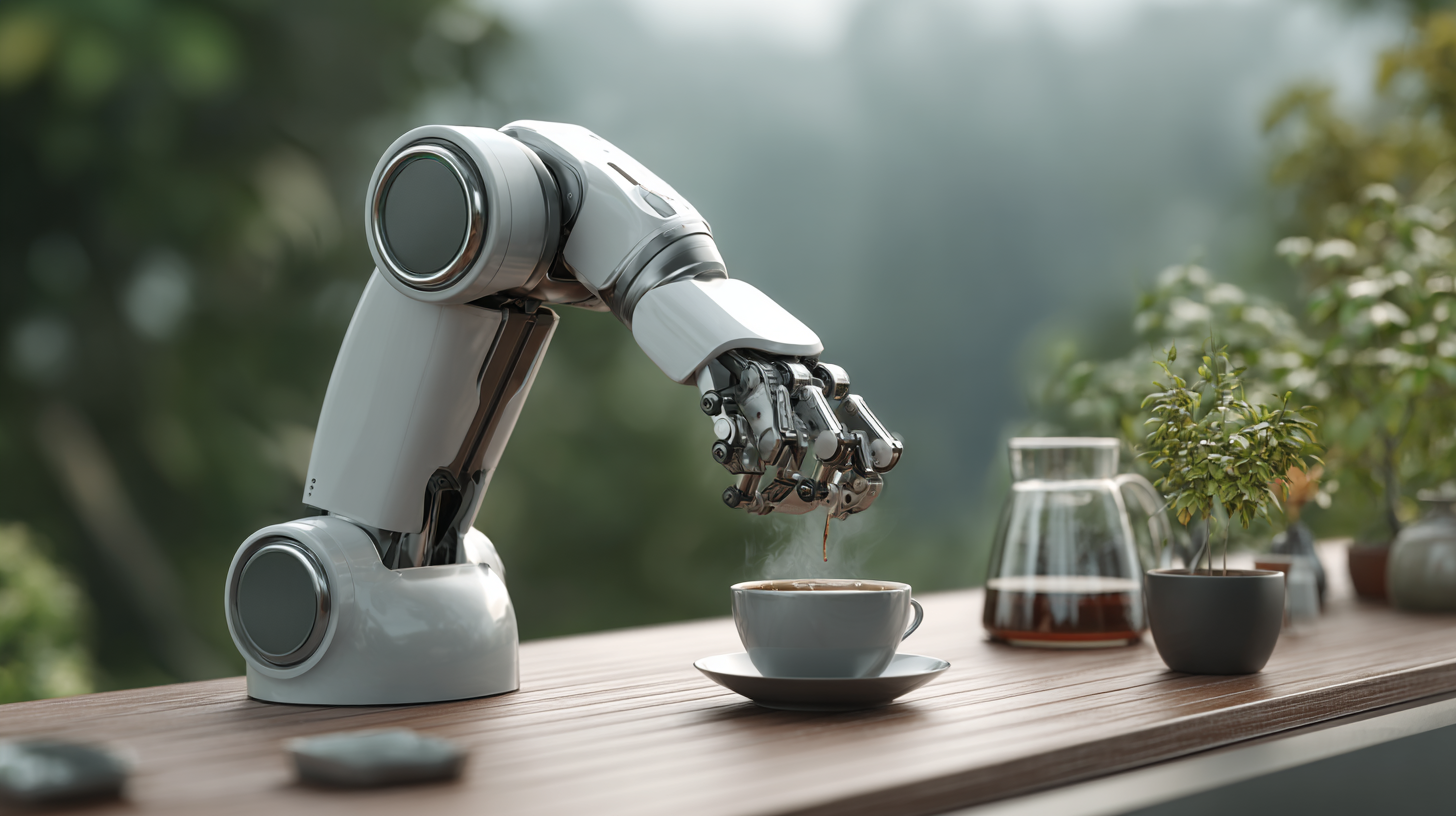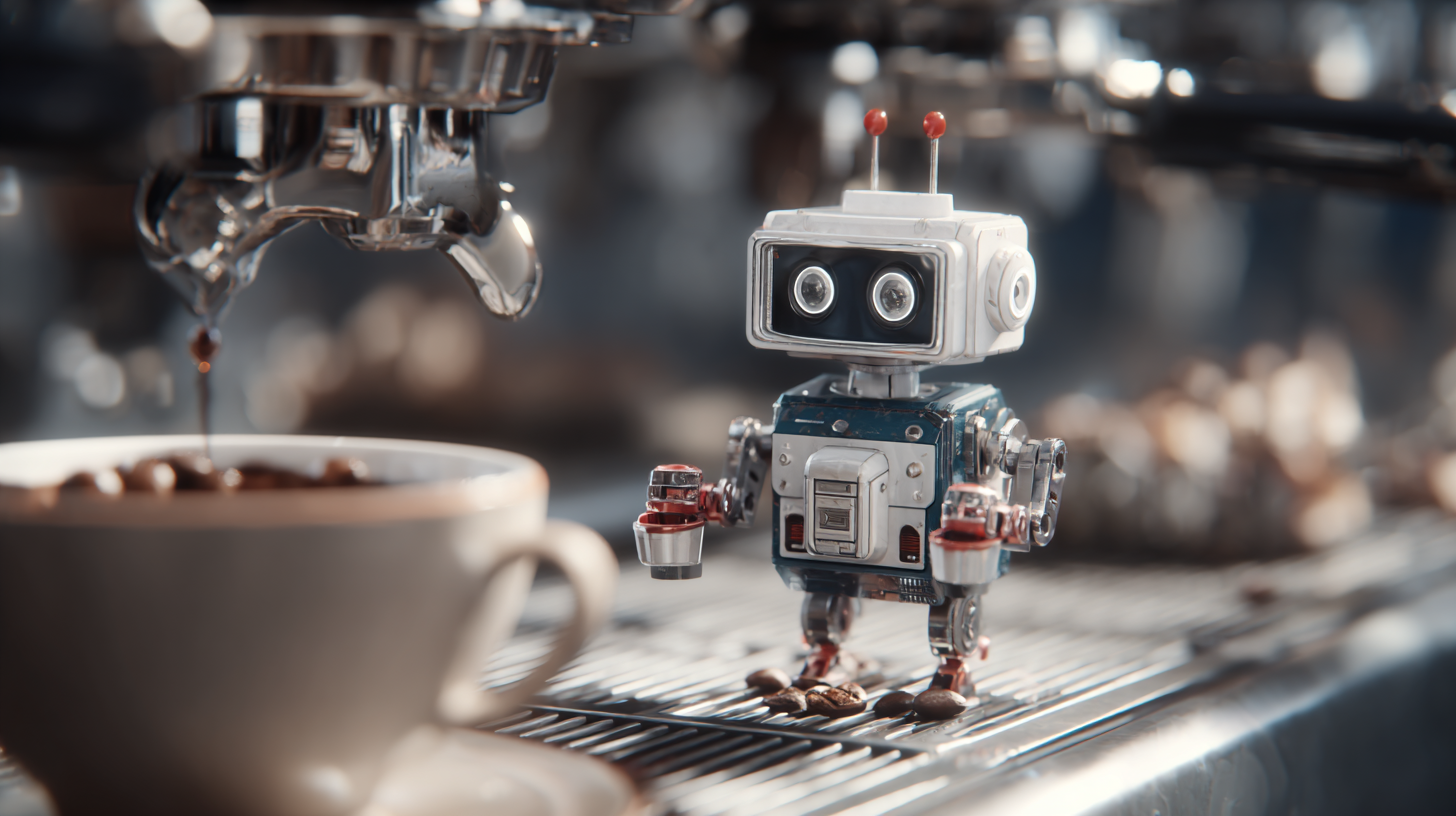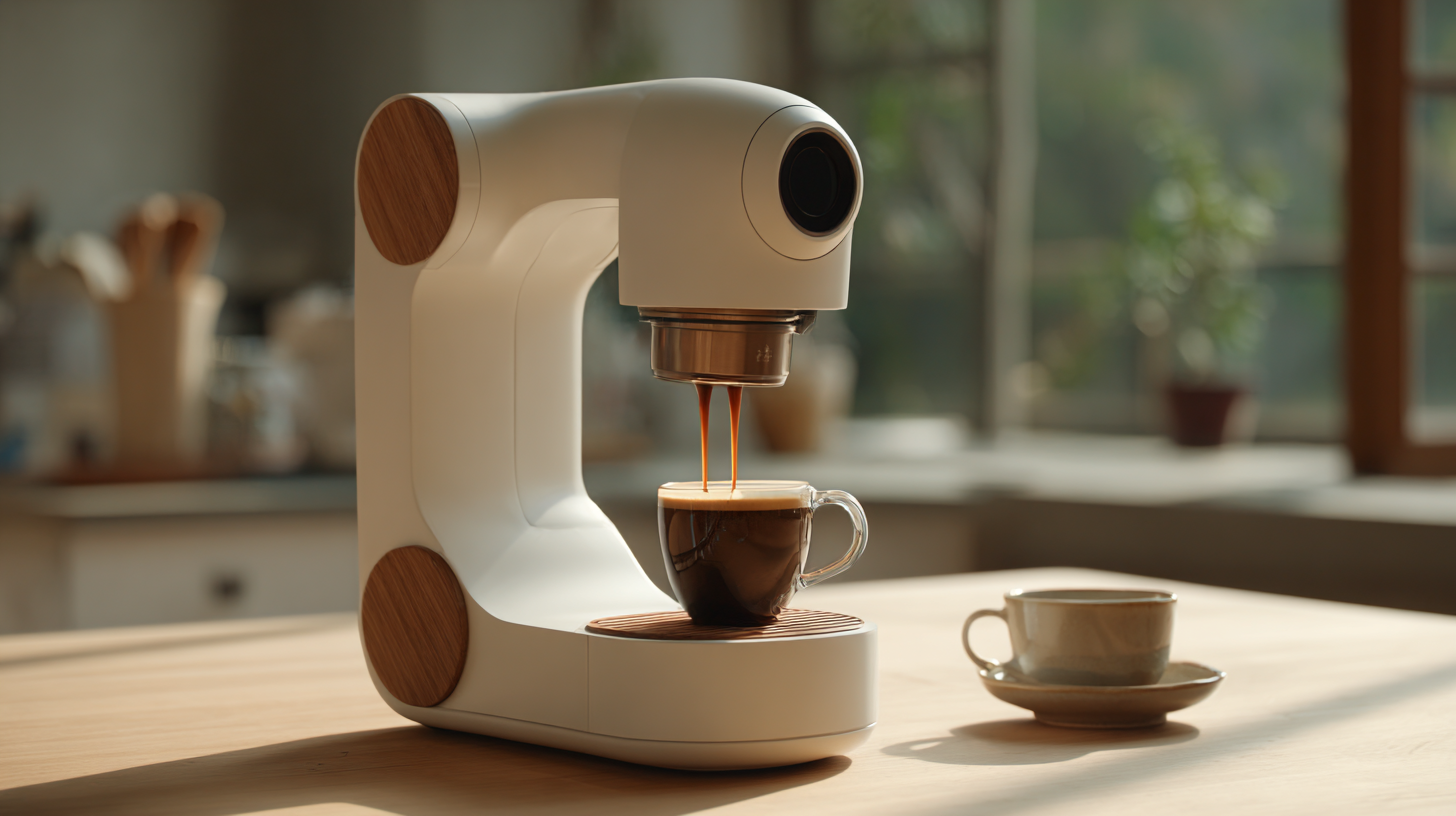Sorry, your browser is not supported. For a better experience, keep your browser up to date. Check here for latest versions
In recent years, the global coffee industry has witnessed a transformative shift with the advent of technology, particularly the emergence of Coffee Robots. These automated systems have begun to change the way coffee is cultivated, processed, and served, leading to profound implications for both producers and consumers alike. Coffee Robots utilize advanced algorithms and robotic systems to automate labor-intensive tasks, enhancing efficiency and consistency in coffee production while reducing human error.

As the demand for specialty coffee escalates worldwide, the introduction of Coffee Robots may serve as a vital solution to meet this growing need. These innovations not only promise to streamline operations within coffee plantations but also provide an avenue for addressing labor shortages in key coffee-producing regions.
In this exploration, we will delve into how Coffee Robots are reshaping the landscape of the coffee industry, the benefits and challenges they present, and their potential future role in ensuring the sustainability and quality of coffee in the global market. Through understanding this rise of Coffee Robots, stakeholders can better navigate the changing dynamics and harness technology to enhance their contributions to the beloved coffee culture.
The emergence of coffee robots is fundamentally changing traditional brewing methods, heralding a new era in the coffee industry. With innovative technologies such as centrifugal extraction and precision control, these machines are not only enhancing efficiency but also elevating the flavor profiles of coffee. Robotic coffee bars are designed to replicate the expertise of skilled baristas, ensuring consistent quality and taste in every cup. This technological revolution caters to the growing demand for specialty coffee while addressing labor shortages and rising operational costs in cafes.
Tips: When exploring coffee robots, consider what features matter most to you. Look for machines that offer customizable brewing options to match your personal taste. Additionally, keep an eye on technology that promotes sustainability, as many robotic systems incorporate water-saving techniques and efficient energy use.

Moreover, as advancements in agricultural practices reduce water consumption by up to 30% on coffee farms, the synergy between coffee robots and sustainable farming methods is reshaping the entire coffee supply chain. This holistic approach not only ensures exceptional quality but also promotes eco-friendly practices, making the coffee enjoyed today more sustainable for future generations.
The emergence of coffee robots, powered by advanced AI technology, signifies a transformative shift in the global coffee industry. These robots are designed to perform various functions, from brewing espresso to frothing milk, with remarkable precision and adaptability. For instance, cutting-edge robotic arms are now capable of operating in dynamic environments, such as busy cafés, allowing them to adjust to the unpredictable nature of human demand. This seamless integration of robotics into coffee preparation not only enhances efficiency but also elevates the overall customer experience.
In addition to improving service speed, the introduction of humanoid robots is expanding the role of automation within the coffee sector. New models can take on multiple tasks, from mixing drinks to assisting with general service duties. This versatility allows café owners to optimize labor costs while maintaining high quality and consistency. Companies are finding innovative ways to leverage this technology, suggesting that the once-niche concept of a robot barista is poised to become more commonplace, reshaping the landscape of coffee service as we know it.
| Feature | Function | Technology Used | Impact on Industry |
|---|---|---|---|
| Automated Brewing | Brews coffee with precision and consistency | Computer algorithms, IoT | Enhances quality and reduces waste |
| Grinding Robots | Grinds beans to required coarseness | Smart sensors, advanced grinding mechanisms | Improves flavor consistency |
| Self-Service Machines | Allows customers to customize orders | Touchscreens, app connectivity | Increases customer engagement and satisfaction |
| Robotic Baristas | Prepares and serves a variety of coffee drinks | AI, robotics | Reduces labor costs and speeds up service |
| Inventory Management | Tracks and alerts for coffee stock levels | Inventory software, machine learning | Improves operational efficiency |
The integration of automation in coffee production, particularly through the use of coffee robots, is transforming the global coffee industry in profound ways. According to the International Coffee Organization, coffee production faces challenges such as labor shortages and rising costs, which are pushing producers toward automation. For instance, a recent report by Technavio predicted that the global coffee robot market is set to grow by over $1 billion by 2025, due to increased adoption of automated systems that enhance efficiency and reduce dependency on manual labor.
The economic implications of this shift are significant. Automating coffee harvesting and processing can lead to a reduction in labor costs by up to 30%, as per industry analysis by ResearchAndMarkets. Additionally, automation technology decreases the time needed for harvesting, allowing producers to respond more swiftly to market demands and fluctuations. However, this transition may also raise concerns about job displacement among traditional workers, highlighting the need for strategies to support those affected by technological advancements in the coffee sector. With these changes, the industry may see a shift towards higher quality products, driven by precision and consistency that automation can offer.
This chart illustrates the relationship between global coffee production and the adoption rate of automation in the coffee industry from 2018 to 2022. As depicted, while coffee production has seen a steady rise, the automation adoption rate has increased significantly, indicating a shift towards more automated processes in coffee production.
The rise of coffee robots is reshaping the global coffee industry, especially when it comes to barista jobs and workforce dynamics. As businesses face labor shortages exacerbated by the pandemic, many have turned to robotic solutions to fill the gaps. In Singapore, for instance, the deployment of robots has become a strategic move to maintain operational efficiency in cafes and restaurants. The integration of AI-powered baristas at events like CES 2024 showcases the potential of technology to create intricate latte art while simultaneously addressing staffing challenges.
However, this shift toward robotic baristas raises concerns regarding job security for traditional baristas. While robots can enhance productivity, they also threaten to displace workers who have honed their craft over years. As the coffee industry continues to adopt automation, it’s crucial for baristas to adapt and evolve their roles. Upskilling in areas like customer service and specialty drink preparation can help baristas remain invaluable as the landscape shifts.
**Tips:** Embrace technology by learning how to use new coffee-making machines and tools. Stay updated on industry trends to identify new opportunities for growth. Collaborate with your coffee team to integrate traditional skills with modern practices, creating a unique customer experience that robots alone cannot achieve.

The evolution of robotics in the global coffee market is reshaping both production and consumer experiences. As coffee consumption continues to rise, companies are increasingly turning to automation to enhance efficiency and consistency in their operations. Robotic baristas, for instance, have emerged in cafes, delivering high-quality beverages with precision and speed. This not only reduces labor costs but also meets the growing demand for specialty coffee in a fast-paced world.
Moreover, advancements in artificial intelligence and machine learning are setting the stage for more sophisticated applications in the coffee supply chain. From precision agriculture using drones to monitor crop health to automated roasting and packaging processes, these technologies promise to optimize resource use and minimize waste. As sustainability becomes a top priority for consumers, integrating robotics into coffee production may well provide a path toward eco-friendly practices, ensuring the industry can meet future demands while addressing environmental concerns.